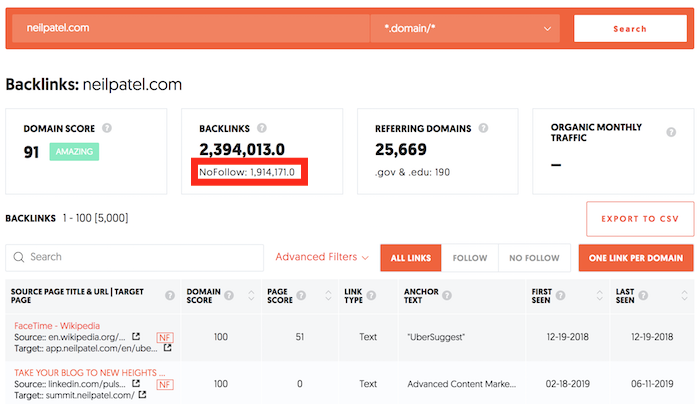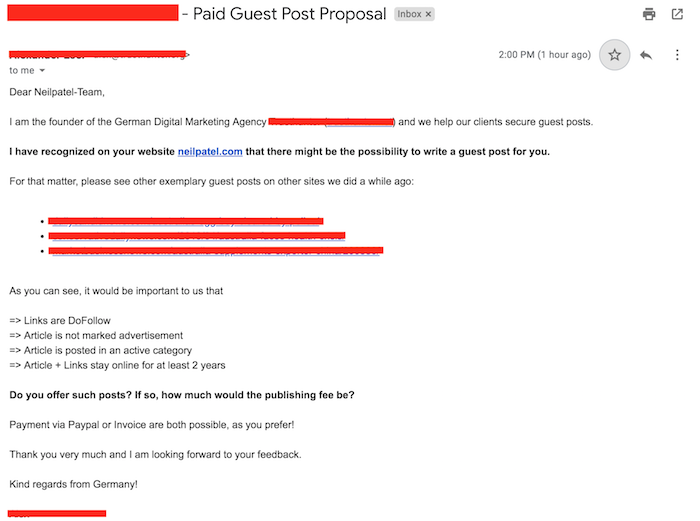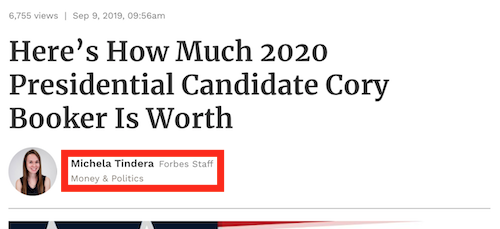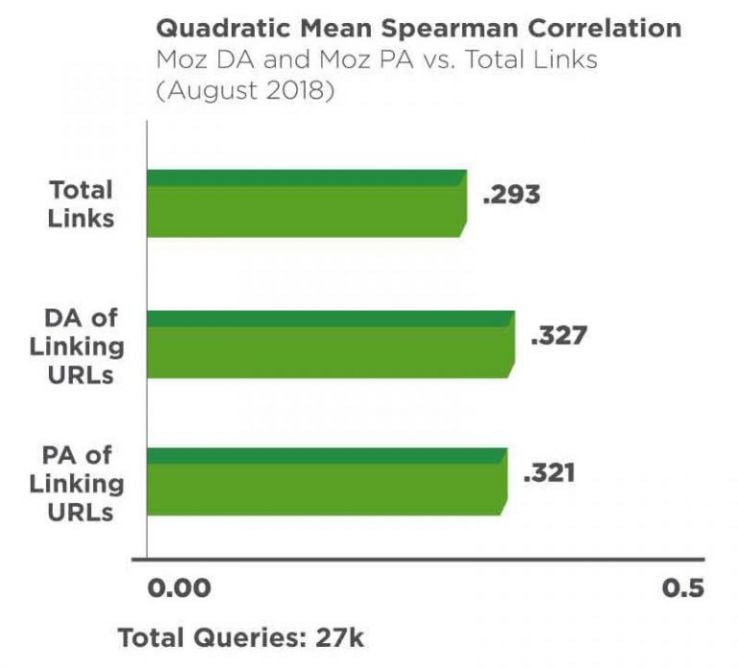Just Getting Your Residential Real Estate Business Off the Ground? Then You Need Get Business Credit Cards for Startups
We looked at a bunch of business credit cards for startups, and did the research for you. A residential real estate agency will need any number of goods and services to get off the ground. So here are our preferences.
Per the SBA, company credit card limits are a whopping 10 – 100 times that of personal credit cards!
This shows you can get a lot more money with business credit. And it also means you can have personal credit cards at retail stores. So you would now have an added card at the same retail stores for your company.
And you will not need collateral, cash flow, or financial data in order to get business credit.
Credit Card Benefits
Benefits can differ. So, make sure to select the perk you like from this choice of alternative business credit cards for startups.
Business Credit Cards for Startups with Average Credit
Capital One® Spark® Classic for Business
For average credit, we like the Capital One Spark Classic for Business. It has no yearly fee. There are cash-back rewards. The card earns an unlimited 1% cash back on all purchases. There is an annual fee of $0.
With this card, you will get benefits including an auto rental collision damage waiver, and purchase security. And you also get extended warranty coverage. And you get travel and emergency assistance services.
But REMEMBER: the ongoing APR is 24.74% variable APR. And the penalty APR is even higher, 31.15%. Also, there is no sign-up bonus.
Get it here: https://www.capitalone.com/small-business/credit-cards/spark-classic/
Business Credit Cards for Startups for Low APR/Balance Transfers
Discover it® Cash Back
Check out the Discover it® Cash Back card. There is a 10.99% introductory APR for six months from date of first transfer. So, this is for transfers under this offer which post to your account by January 10, 2019.
After the introductory APR expires, your APR will be 14.99% to 23.99%. So, this is based on your creditworthiness. Your APR will vary with the market, which is based upon the Prime Rate.
Details
You can get 5% cash back at different places every quarter. So, these are places like gas stations, grocery stores, restaurants, Amazon.com, or wholesale clubs. But this is up to the quarterly maximum each time you activate. In addition, automatically get unlimited 1% cash back on all other purchases.
You will earn an unlimited dollar-for-dollar match of all the cash back you have gotten at the end of your first year, automatically.
Get it here: https://www.discover.com/credit-cards/cash-back/it-card.html
Business Credit Cards for Startups with No Annual Fee
Uber Visa Card
Check out the Uber Visa Card. Uber is the very first ride-sharing service to offer a credit card, in a partnership with Visa and Barclays.
The card offers 4% back per dollar spent at restaurants, takeout and bars, including UberEATS. Also, get 3% back on hotel, airfare and vacation home rentals. And earn 2% back on online purchases.
So, this includes retailers and subscription services like Uber and Netflix. And get 1% back on all other purchases. Each percent/point has a value of 1 cent. Redeem points for cash back, gift cards or Uber credits directly within the app.
By spending at least $500 in the initial 90 days, users can earn a $100 sign-up bonus. Cardholders spending a minimum of $5,000 per year are eligible to receive a $50 credit toward online subscription services.
Details
If you pay your cellphone bill with this card, you are insured up to $600 for cellphone damage or theft.
Cardholders are eligible for exclusive access to specific events and offers. Uber anticipates most of these offers will be available in major cities like New York, San Francisco, Los Angeles, Chicago and DC. There is no foreign transaction fee.
But there is no introductory rate. The APR is a variable 16.99%, 22.74% or 25.74%, based on your creditworthiness. Cardholders with less than stellar credit will be on the higher end of the range.
Also, there are restrictions on Uber credits. To redeem points as credits within the Uber app, accumulate at least 500 points, or $5. Cardholders can convert a maximum of 50,000 points, or $500, in a given day.
Get it here: https://www.uber.com/c/uber-credit-card/
Costco Anywhere Visa® Business Card by Citi
Not taking Uber? Then you’ll want to fill your gas tank someway. Why not do so with the Costco Anywhere Visa® Business Card by Citi?
This credit card earns cash back with every purchase. Get 4% cash back on the first $7,000 spent on eligible gas purchases annually (1% after that). Get 3% cash back at restaurants and on eligible travel purchases. Also, get 2% cash back at Costco and Costco.com. And earn 1% cash back on all other purchases.
Note: the $0 annual fee is only for Costco members. And an active Costco membership is required. Cardholders will get access to damage and theft purchase protection, extended warranty coverage and travel accident insurance.
Also, there is no sign-up bonus offered with this card.
Get it here: https://www.citi.com/credit-cards/credit-card-details/citi.action?ID=Citi-costco-anywhere-visa-business-credit-card
Ink Business Cash℠ Credit Card
Have a look at the Ink Business Cash ℠ Credit Card. Businesses can get cash back with each purchase. Spend $3,000 in the first three months from account opening. And you’ll earn a $500 bonus cash back.
There is a $0 yearly fee with a 0% introductory APR for 12 months on purchases and balance transfers. Thereafter, the APR is a 15.24 – 21.24% variable.
The credit card includes travel and purchase coverage benefits. So, this includes an auto rental collision damage waiver and extended warranty protection.
Details
Earn extra cash back on business categories. So, these include office supply stores, telecommunications, gas stations and restaurants.
Note: this card has a balance transfer fee. Pay 5% of the amount transferred or $5, whichever is greater. Also, there is a foreign transaction fee of 3%.
Get it here: https://creditcards.chase.com/small-business-credit-cards/ink-cash
United MileagePlus Explorer Business Card
Get a good look at the United MileagePlus Explorer Business Card.
Earn 2 miles/dollar with United and at restaurants, gas stations and office supply stores. All other purchases earn 1 mile/dollar. Earn a 50,000-mile sign-up bonus after spending $3,000 in the first three months from account opening.
Benefits include priority boarding, a free first checked bag for you and a companion on the same reservation.
Details
Also, get two United Club passes annually. And get hotel and resort perks including upgrades. Additionally, get early check-in and late checkout. And get an auto rental collision damage waiver.
And also, get baggage delay insurance, lost luggage reimbursement, trip cancellation and interruption insurance. Finally, get trip delay reimbursement, purchase protection, price protection and concierge service.
After the first year, the card has an annual fee of $95. APR of 17.99% – 24.99%, based on creditworthiness.
Get it here: https://creditcards.chase.com/small-business-credit-cards/united-mileageplus-explorer-business
Establish business credit fast with our research-backed guide to 12 business credit cards and lines.
Starwood Preferred Guest® Business Credit Card from American Express
Another possibility is the Starwood Preferred Guest Business Credit Card from American Express.
This card is for those who stay at Starwood Preferred Guest and Marriott hotels often. Get six points per dollar of eligible purchases at participating SPG and Marriott Rewards hotels.
And get four points per dollar at American restaurants, American filling stations, and on American purchases for shipping.
Also, get four points to the dollar on wireless telephone services purchased directly from US service providers. For all other eligible purchases, earn two points per dollar.
Details
Get 75,000 bonus points when you spend $3,000 in the first three months of account opening. Benefits include free in-room premium internet access, Sheraton Club lounge access, and purchase protection.
Plus you get car rental loss and damage insurance. And you get baggage insurance. There is also a global assistance hotline. And there is a roadside assistance hotline. And get travel accident insurance and extended warranty coverage.
The most significant issue is the annual fee. There is a $0 introductory annual fee for the first year, then it’s $95 after that. Plus there is no 0% introductory APR. Instead, there is a 17.74 – 26.74% variable APR
Get it here: https://www.americanexpress.com/us/credit-cards/business/business-credit-cards/spg-amex-starwood-credit-card
Business Credit Cards for Startups for Cash Back
SimplyCash Plus Business Credit Card from American Express
Take a look at the SimplyCash Plus Business Credit Card from American Express. There is a $0 annual fee. And there is a 0% APR on purchases So this is for the first 15 months an account is open.
But when the introductory period runs out, the APR for purchases is 14.24 to 21.24%. So, this is variable and based on creditworthiness.
Details
This credit card has several benefits. These include purchase protection, car rental loss and damage insurance. And they also include a baggage insurance plan, extended warranty coverage and a global assist hotline.
Also, earn 5% cash back at US office supply stores and on wireless phone services. So, these must be bought from American providers. But this pertains to the initial $50,000 of yearly spending. Then, you earn 1% cash back.
You also get 3% cash back on spending category of your choice. So, this is from eight distinct categories. They include airfare, gas, advertising and computer purchases. But it applies to the first $50,000 of yearly spending. Then, you earn 1% cash back.
Cash-back bonuses are automatically credited to the customer’s billing statement.
Note: you cannot use this credit card for balance transfers. There is a foreign transaction fee of 2.7%. The credit card charges up to $38 in late fees. And the returned check fee is also $38. The penalty APR is 29.99%.
And, it kicks in if you have two or more late payments within 12 months. It can also apply if you fail to make the minimum payment on time or have a returned payment.
Get it here: https://www.americanexpress.com/us/small-business/credit-cards/simply-cash-plus-business-credit-card/44279
Capital One® Quicksilver® Card
Take a look at the Capital One® Quicksilver® Card. It offers flat-rate rewards of 1.5% on all purchases. There are no limits to the amount of cash back rewards that cardholders can earn. Also, the card has a $0 yearly fee.
New cardholders have a 0% APR on purchases and balance transfers for the first 15 months after opening the account. Then afterwards they have a 14.74 – 24.74% (variable) APR after that.
A cash bonus of $150 is on offer for those who make at the very least $500 in purchases in 3 months of account opening.
Details
Also, cash back rewards do not expire for the life of the account. And there is no limit to how much you can earn.
This card also offers travel accident insurance. And you get an auto rental collision damage waiver. There are no foreign transaction fees. And there is extended warranty coverage.
Downsides are the flat reward rate, not allowing for any more than that. And the higher APR after the first 15 months.
Get it here: https://www.capitalone.com/credit-cards/quicksilver/
Establish business credit fast with our research-backed guide to 12 business credit cards and lines.
Business Credit Cards for Startups with 0% APR – Pay Zero!
Bank of America® Business Advantage Travel Rewards World Mastercard® Credit Card
The Bank of America® Business Advantage Travel Rewards World Mastercard® credit card has no yearly fee and comes with a 0% introductory APR on purchases for the initial nine months. Afterwards, the card has a 13.24 – 23.24% variable APR
Earn 3 points/dollar spent when you book travel with the Bank of America Travel Center and 1.5 points/dollar on all other purchases. You can get unlimited points and points will never expire.
Details
There is a 25,000-point sign-up bonus when you spend $1,000 within the first 60 days of opening the account. Cardholders get travel accident insurance, and lost luggage reimbursement.
They additionally get trip cancellation coverage, trip delay reimbursement and other advantages.
There is no introductory rate for balance transfers. Also, bonus categories are limited.
Get it here: https://www.bankofamerica.com/smallbusiness/credit-cards/products/travel-rewards-business-credit-card/
JetBlue Plus Card
Take a look at the JetBlue Plus Card for yet another offer of a 0% introductory APR
Earn six points/dollar on JetBlue purchases, two points/dollar at restaurants and grocery stores. And get one point/dollar on all other purchases.
Details
Spend $1,000 in the initial 90 days and pay the yearly fee, and earn 40,000 bonus points. New cardholders receive a 12 month, 0% initial APR on balance transfers made in 45 days of account opening.
After that, the variable APR on purchases and balance transfers is 17.99%, 21.99% or 26.99%, based upon creditworthiness. Benefits include a free first checked bag and 50% savings on in-flight purchases.
There is a $99 annual fee for this card.
Get it here: https://cards.barclaycardus.com/cards/jetblue-card/
Business Credit Cards for Startups: Secured Credit Cards
Wells Fargo Business Secured Credit Card
Have a look at the Wells Fargo Business Secured Credit Card. It charges a $25 yearly fee per credit card (up to 10 employee cards). It also requires a minimum security deposit of $500 (up to $25,000). And it is designed to help cardholders build or rebuild their credit.
Pick this card if you want to earn 1.5% per dollar in purchases without any limits or earn one point for every dollar in purchases. You also get 1,000 bonus points. So this is for every month your company makes $1,000 in purchases on the card.
Details
Also, you get free FICO scores every month. There are no foreign transaction fees. It is possible to upgrade to unsecured credit. Your account is regularly reviewed. And you may become eligible for an upgrade to an unsecured card with responsible use over time. Approval is not guaranteed and depends on factors including how you manage this and your other accounts.
APR is the current prime rate plus 11.90%. There is no introductory APR period and no sign-up bonus. This is not a credit card for balance transfers.
Get it here: https://www.wellsfargo.com/biz/business-credit/credit-cards/secured-card/
Business Credit Cards for Startups for Jackpot Rewards
Chase Sapphire Preferred® Card
Take a look at the Chase Sapphire Preferred® Card for travel points.
You can earn two points per dollar spent on travel and dining at restaurants. And you can earn one point per dollar on all other purchases. Points can be redeemed for cash back, gift cards, or travel.
The card’s benefits include trip cancellation insurance, travel and emergency assistance services. They also include an auto rental collision damage waiver, purchase protection and extended warranty protection.
When you spend $4,000 in the initial 3 months from account opening, you will earn 50,000 bonus points. These points are worth $625 if you redeem them for travel through Chase Ultimate Rewards.
Details
You can earn an unlimited two points per dollar for travel and dining at restaurants. And then earn one point per dollar for all other purchases. Points will transfer equally to 13 leading frequent travel programs with partners. So these include British Airways, Southwest Airlines, United, and Marriott.
There is no 0% introductory APR on purchases or balance transfers. The card’s standard APR is 17.74 – 24.74% variable. Also, the card has an annual fee of $0 introductory for the first year. And then it skyrockets to $95.
Get it here: https://creditcards.chase.com/rewards-credit-cards/chase-sapphire-preferred
Ink Business Preferred ℠ Credit Card
Get a look at the Ink Business Preferred Credit Card from Chase. Cardholders earn 3 points for every dollar spent on travel, shipping, internet, cable, phone and qualifying advertising with the card. So, this is up to $150,000 each year. And all other purchases earn an unlimited one point per dollar spent.
This is a Visa card.
Cardholders get benefits like purchase protection, trip cancellation or interruption insurance. They also get cellphone protection. And they get extended warranty coverage. And they get an auto rental collision damage waiver.
Details
Earn 80,000 bonus points when you spend $5,000 in the initial 3 months from account opening. There is an annual fee of $95. You can add employee credit cards at no additional cost.
This credit card only offers 3 points per dollar to a limit of $150,000 a year. So, this is for travel, shipping, internet, cable, phone and qualifying advertising. All other purchases get an unlimited flat rate of one point per dollar. And there is no introductory APR
Get it here: https://creditcards.chase.com/small-business-credit-cards/ink-business-preferred
Establish business credit fast with our research-backed guide to 12 business credit cards and lines.
Hilton Honors American Express Ascend Card
Take a look at the Hilton Honors American Express Ascend Card, which earns hotel rewards points. Get up to 12 points per dollar of eligible purchases at participating Hilton hotels or resorts.
Automatically get Hilton Honors Gold status. And this includes room upgrades when available, a 5th night free when you book a rewards stay of 5 nights or more.
And get free internet access and late checkout. It also includes a 25% bonus on base points earned with Hilton Honors.
This card has a variable purchase APR of 17.74 – 26.74%. There is an annual fee of $95.
Details
Cardholders can get a 125,000-point welcome offer after making $2,000 in eligible purchases in 3 months from account opening. Get a free weekend night award after making $15,000 in eligible purchases on your card in a calendar year.
Benefits include purchase protection. And there is extended warranty coverage. They also include car rental loss and damage insurance and travel accident insurance.
Spend $40,000 on eligible purchases with the card within a calendar year. Then you can earn Hilton Honors Diamond status through the end of the next calendar year. This status includes all of the benefits of Gold status.
It also includes a 50% bonus on base points earned with Hilton Honors. And get exclusive floor lounge access at select properties. But that is terribly high spending required for elite status. Only you can decide if that’s worth it.
Get it here: https://www.americanexpress.com/us/credit-cards/card/hilton-honors-ascend/
The Perfect Business Credit Cards for Startups for You
Your absolute best business credit cards for startups will hinge on your credit history and scores. For a residential real estate agency, some of the more important perks you need are probably deals on gas and other vehicle maintenance. And everyone can use low rates.
But only you can pick which features you want and need. So make sure to do your homework. What is outstanding for you could be catastrophic for others.
And, as always, make sure to build credit in the recommended order for the best, fastest benefits.
The post Attention All Residential Real Estate Agents Learn All About Business Credit Cards for Startups appeared first on Credit Suite.










